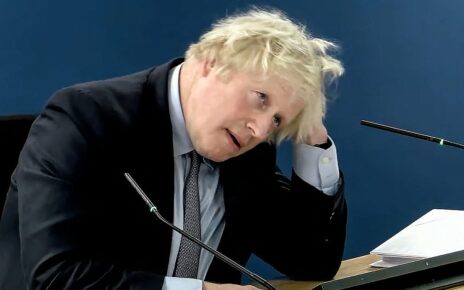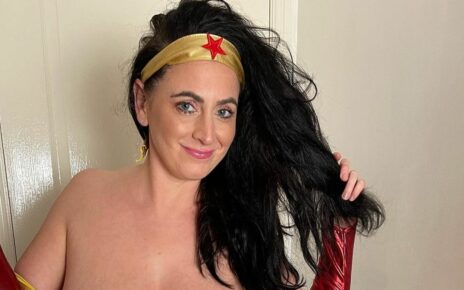
‘Ladies,’ the teacher said in a loud voice as she walked into the room. ‘Sit down’.
I was already sitting in my seat ready to start the history lesson. I was so familiar with the use of gendered language. ‘I need you ladies to get your textbooks out,’ she directed her hand at my friend and I as we sat at the back.
My stomach dropped as she said this, knowing that, once again, I wasn’t being seen as me – but I stood up and went to get the books.
When I returned, my teacher began to walk over to me with a sense of pity in her eyes and simply said: ‘I’m sorry.’ I automatically knew what she meant and gave a nod of appreciation.
I am Miles, a 16-year-old transgender boy and I am currently taking my GCSEs.
When I was 12, I first discovered the term ‘transgender’, through a book that was written to discuss LGBTQ+ identities, which I slowly began to realise applied to me. I then made the decision to come out to my friends at 13.
They mostly reacted well, and I began to live more as myself.
When I became more confident, I came out to my parents at 14. They also accepted me, but did take a while to begin to get used to my new name and pronouns. Out of all this, I have built a support network for myself with people, my close family and friends.
Secondary school has been a rollercoaster for me. My school is a single-sex female school, and they were incredibly supportive when I came out – from changing my name and pronouns in the school system, to letting all my teachers know how to address me.
Although they have been amazing, it has still been hard. Being grouped as a ‘girl’ at every sporting event and the automatic use of ‘she/her’ pronouns; the use of the words ‘ladies’ and ‘girls’ by the teachers – even the lack of gender-neutral toilets have made me feel singled out.
Many of my teachers have changed how they address me, but some still use the ‘she’ and ‘her’ pronouns that they have defaulted to for years.
Throughout my five years at school, there have been many changes. One change was the P.E. kit, which went from shorts being available, to only skorts.
When I saw this, I immediately felt like something needed to be said. I emailed my head of year and the P.E. department and explained my view.
I told them that this may single out students who do not feel comfortable wearing a skort, as well as those who do not identify or present in a feminine way and would not want to wear it.
Additionally, I said that re-introducing shorts back into the P.E. kit leaves an open choice for those who do not yet know how they would want to present themselves.
This led to an apology from them, along with a notice presented to students that they were free to wear shorts if they were still the correct school colours.
I was pleased to have kickstarted the beginning of a discussion among teachers of becoming more inclusive with gender diverse students.
Sport has always been a large part of my life – from competing for my school athletics and rounders teams, and previously playing in a football team, training in MMA, and joining my local rugby team.
I have played for my local rugby team for the past five years progressing through each age group.
Many of my teachers have changed how they address me, but some still use the ‘she’ and ‘her’ pronouns that they have defaulted to for years
Due to joining at the age of 12 I was only able to play in the separate gender teams, so I began lining up for the girls’ team, fearful of the judgement and ignorance that would follow if I tried to go through the processes to play with the boys.
But when we play in a tournament in the Netherlands, the rules allow for mixed gender teams up to the age of 16 – meaning I feel better even in this small way by sharing the pitch with players of my own gender.
But being excluded from my correct team at home has made me question how welcome I truly feel within my sport and club as well as whether I should change to the boys’ team due to concerns over how I would be treated.
While both my peers and coaches have supported me through all my troubles, I want people to understand that just because someone may be trans, it doesn’t make them any less valued as a team member; any better at passing a ball, tackling someone or scoring a try.

Someone should be judged for their ability, not singled out for their gender identity.
But with trans people being excluded by large governing bodies within high level sport, I’ve a sense of hopelessness surrounding my future as a player.
A stigma and lack of representation of trans people within sports leads to less people feeling like they can compete or be a part of these sporting communities.
I see stories in the media talking about a transgender athlete and it is often from the transphobic point of view of a certain audience, governing body or even of teammates.
These stories tend to focus on just trans women taking part in sport, leaving trans men and non-binary people seemingly invisible.
For me, this lack of representation and visibility has made me feel that I won’t be able to continue my rugby career into adult age groups, unable to picture myself competing in an older age group or even at a higher level of play.
As well as the fear of judgement from teammates, spectators or even the media.
However, I did eventually find representation for me as a trans boy when I began to research transgender athletes through the rugby player Verity Smith – who is also a trans man.
Through the charity Mermaids, where I am a member of their youth forums as well as a part of their sports inclusion campaign, I was able to talk with Verity about our shared experiences as trans men in sport.
Within this we talked about our personal experiences within rugby as trans players and why we believe the game should be more inclusive and what that would look like.
Since this conversation, I proudly competed again in the Netherlands once again with a mixed gender team as well as playing in the Kent cup finals and Kent 7’s competition in the girls team
So far in my transition, I have socially and legally changed my name and title. I am on the NHS gender clinic waiting list and I hope in the future to begin medical transition.
In the future, I hope sports really do far more than they currently do to promote inclusion, as well as improving protocols to help transgender people of all ages and all skill levels.
I think this is such an important wish as it will allow anyone and everyone to be a part of something that will bring them joy, as well as a sense of community.
Mostly, I want trans sportspeople to be able to see others like them playing at elite levels.
I wish to continue to spread my story for those people out there like me who couldn’t find representation of someone like them.
Do you have a story you’d like to share? Get in touch by emailing [email protected].
Share your views in the comments below.
Source: Read Full Article


